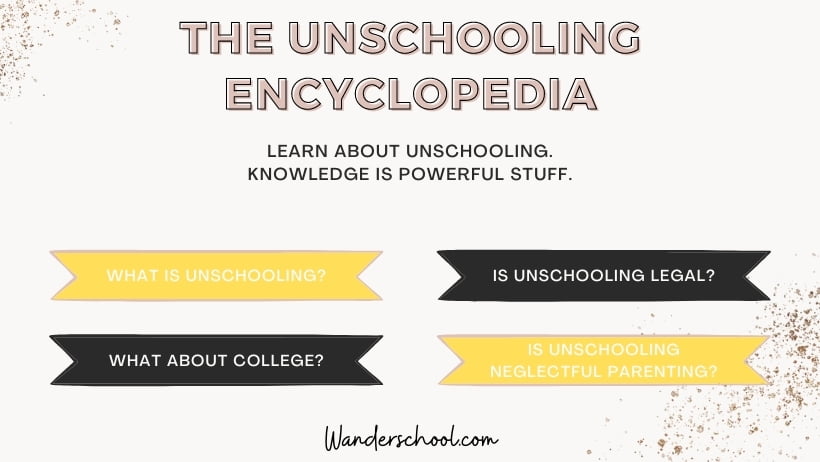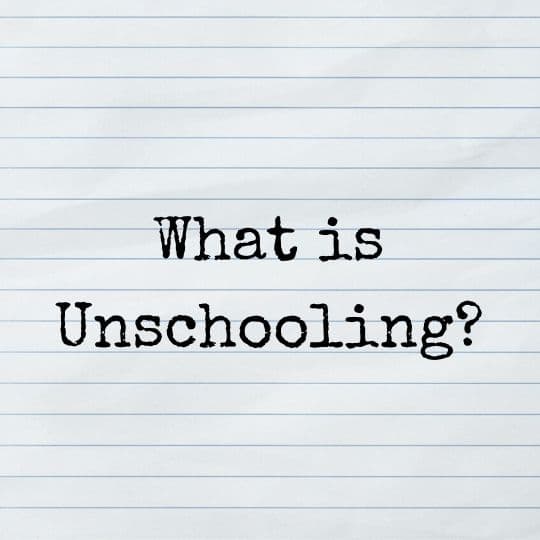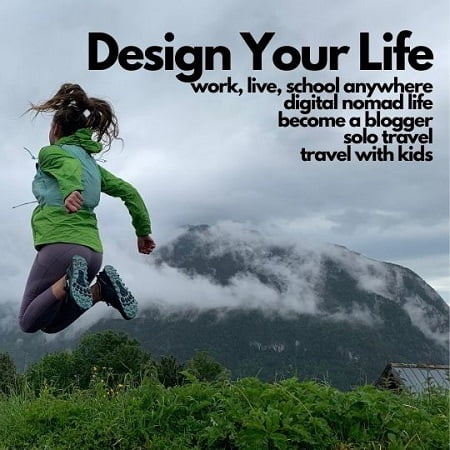
Everything You Ever Wanted to Know About Unschooling
Unschooling is interest-led education, which reflects a child’s interest. It is based on respect for the child and trust in the child.
It is one approach to home education or a form of homeschooling. Some take the view that unschooling is organic, life learning or a lifestyle, rather than a particular approach that falls under the ‘homeschooling’ umbrella.
LEARN MORE:
Unschooling is legal in many places where homeschooling is legal. It is one educational approach and style of homeschooling. If you opt to unschool, check with your local or state governing body that oversees home study to confirm your methodology, pedagogy, or approach can satisfy any reporting obligations.
You might find additional help, advice, or stories of experience about unschooling and complying with regulatory requirements through local homeschool groups, social media groups in your area, or the HSLDA (Homeschool Legal Defense Association).
Absolutely! And I can tell you my first born unschooler was accepted into university at the age of 16.
Depending on the school or program, a child who has grown up unschooled may need to satisfy entrance exam requirements for admission (however, many schools are moving away from admission test requirements, so you can look for one of those schools if you wish to avoid testing), create a high school transcript or diploma, or compile a portfolio that highlights academic accomplishments.
Yes, many homeschooling associations, programs, and home study teacher resources support unschoolers, just as they do other families who opt for a different homeschooling approach or method.
For example, I am aware of home school support teachers who work with unschoolers to help them document their school progress in a way that satisfies state or local requirements. In addition, there are programs that will help with transcribing unschooling life into ‘academic’ transcripts. The HSLDA also supports home study families.
Definitely! Unschooling is powerful stuff. Children naturally want to learn. If a child has a supportive, encouraging environment, unschooling can exceed a parent’s (or anyone’s) wildest imagination in terms of a child’s interest-led learning, knowledge acquisition, personal and social development. Studies show unschooling works.
Sure thing! There are indeed famous or accomplished unschoolers.
The list includes the children of Blogger Ree Drummond, Better Known as Pioneer Woman, Rockstar Billie Eilish, Jonas Brothers, Alanis Morissette, Elon Musk, and US Sky Running Team Athlete and Blogger, Sky Running Girl, Naia Tower-Pierce.
No. If anything, it’s a lifestyle, which puts a child in the driver’s seat of their interests and education, and allows them to learn at their own pace and according to their own abilities.
A feature by CUNY Hunter College suggests that Unschooling could be the future of education.
It varies! Every unschooling family is different. Read What a Typical Unschooling Day Looks Like to see what a day looks like in my family.
- For unschooling and homeschooling documentaries, check out the good list by DIYGenius.
- For unschooling-flavor, child-led and natural learning flicks, check out Joyfully Rejoicing’s List.
- For the best, educational indie movies to watch with your teens, check out this list of films.
Not exactly. Although some families avoid saying no or don’t have rules, I think most, if not every, unschooling family I’ve known shares the basic rule of mutual respect and understanding. So, while an unschooling family might not have a bedtime rule, there might be other “rules” in play–such as we treat each other, our house, and our stuff as we would our own or want people to treat us.
However, ultimately when it comes to saying ‘no’ to children, setting boundaries, or establishing rules in unschooling families, there are no rules. Families do what works for them! 😉
They do if they want them or need them, such as for college, work, military, or other opportunities!
There are homeschooling services, support teachers, and associations, such as the HSLDA that can help give guidance. As well, local homeschooling networks can offer a wealth of knowledge and experience on the transcript or diploma making process relevant to your state or local rules.
READ MORE: How to Make the Homeschool Diploma.
One fear some unschooling families or reluctant (un)schooling families have about this approach to learning is that unschoolers means kids will sit around gaming all day. Or sleep all day.
Are unschoolers lazy? Umm… my view is that unschoolers aren’t any more ‘lazy’ than other kids their age. In my experience, my children are highly motivated. But they also love and appreciate their down time, and that can include gaming, time on Social Media, running mountains, shopping, going out for Starbucks, gardening, watching movies with friends, or making tacos.
Does that mean they’re lazy? Nah, not by a long shot! It means they are healthy and happy, well-adjusted teens and teens. 😉
Oh gee, there are too many things to mention. Here are some of the things that draw families to unschooling:
- Child-led learning, also often considered non-coercive learning
- Children learn on their own schedules, according to their own abilities and rhythm
- Unschooling is natural, life-long learning; it is living life!
- No need to “re-create” school at home
- Lends itself well to travel lifestyles, including roadschooling and worldschooling
- An approach that supports and nurtures positive growth, trust, mental health, communication, and well-being
- Unschoolers tend to be extremely passionate about learning what they are interested in and develop subject area depth of knowledge
- Can fit well with a family’s routine or work schedule
- “Real world” schooling – children learn what they live and experience
Some think of unschooling as on a spectrum, with radical unschooling giving the most autonomy and freedom to a child. Others disagree, and say that unschooling is just that, unschooling (and that there is no spectrum or hybrid approach).
To some, radical unschooling means parents don’t insist on their children doing anything particular related to academic or life knowledge, and that they will acquire what they need for themselves based on their own interests and timetable.
For example, I think of my my family as unschoolers, but rarely, if ever, do I describe us our family as radical unschoolers. Why? I buy or borrow stacks of books, videos, workbooks, supplies, and let the kids do what they wish. But math, for example, well… that’s a subject I’ve always said they have to actually do some work in, particularly as they have grown older. Why? Because I don’t think some math concepts are learned organically or are simple to learn and books and practice helps. And I know at least two of my children have taken interest in academic areas that are enhanced by high level math skills. 😉 Does that make me my family less authentic unschoolers. Maybe. But, I’m okay with that and I know how unschooling works like magic in their life in every other area!
Yes! You can find my recommended book list at Best Reads for Homeschooling Parents. It’s SO good!




